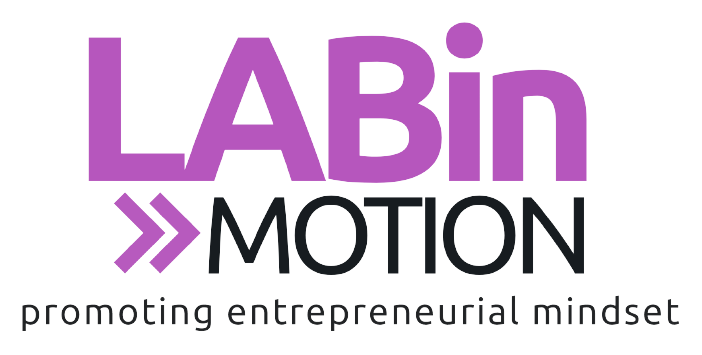Agritech startups in Israel heavily populate the list of the world’s leading agriculture technology companies every year. Currently, there are more than 400 Israeli startups serving the agritech industry. The startups, which include companies of all sizes including unicorns, are working on revolutionary innovations for the global agriculture sector.
The leading Israeli startups are changing the face of agriculture by tackling a range of challenges at both the local and global levels. Some are reducing food scarcity and crop wastage, whereas others are trying to control the impact of natural disasters like drought, floods, and water shortage.
Here, we take a deeper look at three Israeli agritech startups that stand out for their cutting-edge solutions to agricultural problems.
1AgroWebLab
AgroWebLab, often referred to as AWL, is a joint venture company established by Israel-based BF and China-based Tai Nong and Anhui Longcom. It was founded in 2012 as an R&D project between the three companies with approximately US$ 27.8 million. Israel BF and Anhui Longcomown 45% and 35% of shares, respectively, while Tai Nong owns the remaining 20% [1].
The Founder and CEO, Zohar Ben Ner, has been a prominent figure in the Israeli agritech business for over 30 years. He is also the co-founder of Kaiima, an Israeli genetics and breeding company that raised over $80 million in funding.
The aim of this collaboration was to engage in agricultural monitoring, crop management, and data analysis using a SaaS model. As such, AWL specializes in research and development in sustainable farming methods. So far, it has provided unique solutions employing bio sensors and cloud-computing services to precisely track plant health and soil conditions and compare it against the local weather to ensure that the crops’ needs are met properly in real time.
AWL is best known for proposing the automated Growth-Based Irrigation (GBI) model. Sold under the brand name SupPlant, this innovative concept comprises advanced technology and a service suite that maximizes yield while consuming much less water.
Farmers can set up remote sensors that measures soil moisture and pH level, temperature, humidity, trunk/ stem growth rate, leaf temperature, and even fruit yield rate. The data collected from the field is automatically transmitted to AWL’s web servers. Here, artificial intelligence algorithms analyze all the info and send real-time alerts along with tailored instructions to help the farmers manage their crops accordingly. Additionally, the GBI provides automatic irrigation so plants get the right amount of water at the right time.
AgroWebLab is headquartered in Taizhou, which is the hub of China’s private economy, and has a subsidiary firm AWL IL, located in Afula, Israel. The Israeli company only has about 30 employees but generates over $2 million in sales annually [2].
2Hishtil
Hishtilis a horticulture-oriented agritech company that produces ornamental seedlings, young vegetable plants, and herbs. It is headquartered in the coastal city of Ashkelon but targets the geographical markets across Europe and beyond.
The company is famous for being at the forefront of agricultural solutions that focus on knowledge-based plant propagation. Hishtil takes a unique approach to cultivation in the sense that it combines its industry expertise andhorticulture awareness with high-end technology to ensure the healthiest plant growth possible.
This agritechcompany operates as a global network of nurseries. It has four business sites in Israel in addition to eight joint-venture nurseries in South Africa, Bosnia and Herzegovina, Spain, Italy, Turkey, and the US. The sites in Israel employ a total of approximately 400 people, whereas the international joint venture sites are managed by a total of another 500+ employees [3].
As a multinational startup, Hishtil boasts a customer base of hundreds of thousands of farmers and gardening enthusiasts of all scales and skill levels. The company owns about 25 hectares of production area in its home country while the land area in nurseries located worldwide combines to about another 25 hectares. Hishtil grows more than one billion seedlings and young plants every year, with grafted vegetables accounting for about 8% (80 million).
This Israeli agritech startup has made a name in the industry not only due to its environmentally friendly and economic horticultural solutions but also because all its practices comply with strict international standards. According to D&B report, Hishtil has an annual revenue of about $17 million [4].
3Syngenta
Syngenta exists with a mindful mission to improve global food security by helping million of farmers make smart agricultural decisions using advanced technology.
With more than 150 years heritage, it is predominately avegetable seeds company. Growing food crops is, no doubt, a challenging business. And Syngenta is committed to making it easier for all those involved. As such, it invests in R&D to bring winning innovation for farmers and other stakeholders.
Syngenta has a total of 27 research facilities worldwide where it also runs locally customized breeding programs, launching around 150 new varieties every year. It prides itself on breeding vegetable varieties that can better withstand the harsh and usually unpredictable effects of weather nowadays. In other words, Syngenta’s seeds are truly one-of-a-kind as they are engineered to ensure plentiful yields despite the climate change. Its portfolio includes more than 2,500 varieties of drought resistant and heat tolerant seeds of 30 different vegetable species [5].
This Israeli startup has raised around $2 billion in investment, accelerating its growth by enabling the company to deliver more sustainable solutions. Consequently, Syngenta is also working on AI and machine learning to ensure more effective crop protection.
Israeli Startups: The Agritech Market Map
There’s no denying that Israel is an innovation hub – and its agritech sector is a solid proof of its novel offerings. Given the unique solutions that Israeli agritech companies are continuously creating, it’s not surprising why the local industry is developing at an incredible pace in terms of incoming investments as well. Over the last few years, there have been many large and strategic investments such as Prospera’s $15 million Series B. On average, more than $90 million are invested annually in Israeli startups, making the country a world leader in funds allocation in the agritech sector.
References:
[1] http://www.awlchina.cn/eng/company








